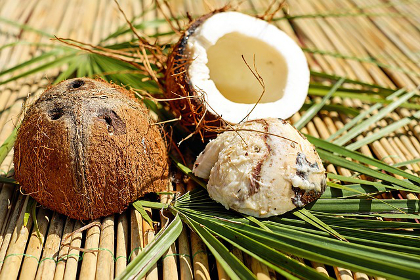
What is Oil Pulling?
Before modern medicine, elders in India developed Ayurveda, a form of mind-body health system. The basic tenet of Ayurveda is that when balanced, your body has amazing powers to heal itself.
One of the practices of Ayurveda is oil pulling, which has been used in traditional Indian folk remedies to prevent tooth decay, bad breath, bleeding gums and to strengthen your teeth and gums.
August 3, 2016 | Source: Mercola.com | by Dr. Joseph Mercola
The history of oil pulling dates back nearly 3,000 years. Before modern medicine, elders in India developed Ayurveda, a form of mind-body health system. The basic tenet of Ayurveda is that when balanced, your body has amazing powers to heal itself.
Practitioners recommend you provide your body support through a healthy diet, adequate sleep, reduced stress, strong digestive process and living in tune with your natural constitution.1
One of the practices of Ayurveda is oil pulling, or the act of swishing and rinsing your mouth with oil. Oil pulling has been used in traditional Indian folk remedies to prevent tooth decay, bad breath, bleeding gums and to strengthen your teeth and gums.2
Benefits to Your Oral Health
Some believe oil pulling may have more extensive benefits to your health. I can’t support all of those claims, but I have first-hand knowledge of how oil pulling benefits oral health as I have been pulling consistently since 2011.
Oil pulling is an effective mechanical method of cleansing your teeth and the smallest crevices along your molars that the bristles of your brush cannot reach. Your dentist may have recommended using sealants on your teeth to help prevent decay from forming in these tiny areas.
In the past, popular oils for pulling were sesame and sunflower oils. However, those are high in omega-6 fats, which you likely get enough of each day. Cold-pressed, virgin coconut oil is my oil of choice for a couple of reasons.
Bacteria is the root cause of both bad breath and cavity formation in your teeth. They have membranes that are fat-soluble and break down with the mechanical action of swishing and pulling oil. Research demonstrates that pulling oils improves the saponification, or breakdown of bacterial membranes.3
While sesame and sunflower oils may functionally break down bacteria, coconut oil adds another advantage. Coconut oil is a medium-chain fatty acid found to inhibit Streptococcus mutans, the chief bacteria responsible for cavities.4,5
Coconut oil also protects against yeast infections in the mouth, generally referred to as thrush.6,7 This condition is more common if your immune system is compromised, or may be experienced by infants and nursing mothers.
Oil Pulling 101
In the video below I describe how I use oil pulling in my own oral health practices and the benefits you may experience as well.
Simply measure out about a tablespoon of coconut oil to pull. You may find this is too much or not enough, but it’s a good place to start. Coconut oil is solid below 76 degrees Fahrenheit (24.4 degrees Celsius) but will quickly liquefy once you put it into your mouth and start moving it around.
Swish the oil around your mouth, using your tongue and cheeks to pull the oil through your teeth. Try to relax your jaw muscles to avoid muscle fatigue. The action is natural and usually won’t cause discomfort.
Although you’ll want to use it as if it were mouthwash, you don’t want to gargle it or swallow the oil you’ve been pulling. If you feel the urge to swallow, it’s important you spit it out and start again.
As you swish the oil around your mouth it breaks down bacteria. Both saliva and bacteria become incorporated into the oil, which is why you don’t want to swallow the oil as you swish. After approximately 20 minutes the oil begins to get thick and milky white.
Spit the oil into your garbage can or outdoors. I spit it out in the yard, making sure I don’t get it on my plants. Although your saliva is combined with the oil, the liquid may still be oily enough to coat your plumbing and cause a blockage or cause water to drain more slowly. In time, oil pulling can become as natural as brushing your teeth.
By increasing the pH in your mouth after pulling you may reduce bacterial growth even further. To do that, mix 1 teaspoon of baking soda in 6 ounces of water and gargle. This will alkalize the pH of your mouth, and since bacteria thrive in an acidic environment, the increased pH will discourage growth.
https://www.youtube.com/watch?v=TFJdUyqLHMc
